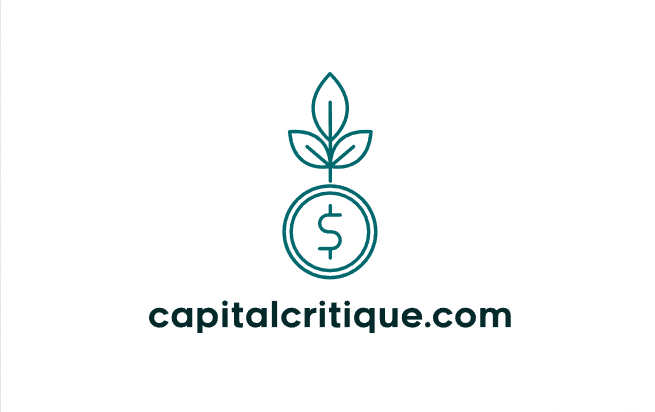Credit cards can be both a valuable financial tool and a potential source of trouble, depending on how they are used. Deciding whether to get a credit card requires careful consideration of your financial habits, goals, and current situation. In this comprehensive guide, we’ll explore the reasons why you might want to get a credit card and the reasons why you might want to avoid them.
Table of Contents
Reasons to Get a Credit Card
1. Building Credit History
One of the primary reasons people get a credit card is to build a positive credit history. Your credit history is a record of how responsibly you manage debt and is a crucial factor in determining your credit score. A good credit score is essential for obtaining loans, renting apartments, and even securing employment in some cases. By using a credit card responsibly—making timely payments and keeping balances low—you can establish and improve your credit history over time.
Example: Sarah, a recent college graduate, decides to get a credit card to start building her credit history. She uses the card to make small purchases each month and pays off the balance in full before the due date. Over time, Sarah’s responsible credit card use helps her qualify for an auto loan at a favorable interest rate when she decides to purchase a car.
2. Convenience and Security
Credit cards offer convenience and security when making purchases, particularly in today’s digital age. They eliminate the need to carry large amounts of cash and provide added protection against fraud and unauthorized transactions. Many credit cards also come with additional security features such as zero-liability protection and fraud monitoring services, giving cardholders peace of mind when shopping online or traveling.
Example: John, a frequent traveler, relies on his credit card for its convenience and security features. He feels safer using his credit card to book flights and accommodations online, knowing that he is protected against fraudulent charges and unauthorized transactions. Additionally, John appreciates the added benefits such as travel insurance and emergency assistance services offered by his credit card issuer.
3. Rewards and Perks
Another compelling reason to get a credit card is the opportunity to earn rewards and perks on your spending. Many credit cards offer cashback, points, or miles rewards programs that allow cardholders to earn rewards on their everyday purchases. These rewards can be redeemed for a variety of benefits, including statement credits, gift cards, travel expenses, and merchandise. Additionally, some credit cards come with valuable perks such as extended warranties, purchase protection, and airport lounge access.
Example: Emily, a savvy shopper, uses a rewards credit card to earn cashback on her everyday purchases. She earns 2% cashback on groceries, gas, and dining and 1% cashback on all other purchases. Over the course of a year, Emily accumulates a significant amount of cashback rewards, which she redeems as a statement credit to offset her monthly credit card bill.
Reasons to Avoid Getting a Credit Card
1. Temptation to Overspend
One of the most significant risks of having a credit card is the temptation to overspend. With the ability to make purchases now and pay for them later, it’s easy to fall into the trap of spending more than you can afford. Carrying a balance on a credit card can lead to high-interest charges, fees, and long-term financial stress. If you struggle with impulse buying or have difficulty sticking to a budget, a credit card may not be the best choice for you.
Example: Mark, a recent college graduate, gets a credit card with a $5,000 credit limit. Excited about his newfound purchasing power, Mark starts using the card to buy expensive electronics, clothes, and dining out. Before long, Mark maxes out his credit card and finds himself struggling to make the minimum monthly payments. The high-interest charges and fees quickly add up, putting a strain on Mark’s finances.
2. High-Interest Rates
Credit cards often come with high-interest rates, particularly for cardholders with less-than-perfect credit. If you carry a balance on your credit card from month to month, you could end up paying hundreds or even thousands of dollars in interest charges over time. These high-interest costs can quickly outweigh any rewards or benefits you receive from using the card. If you anticipate carrying a balance on your credit card or are unable to pay off the full balance each month, you may want to explore lower-interest alternatives such as personal loans or lines of credit.
Example: Lisa, a recent college graduate, gets a credit card with an annual percentage rate (APR) of 24%. She initially plans to use the card for emergencies and occasional purchases but finds herself carrying a balance on the card due to unexpected expenses. As a result, Lisa ends up paying over $1,000 in interest charges over the course of a year, significantly impacting her overall financial health.
3. Damage to Credit Score
Mismanagement of a credit card can have a negative impact on your credit score, making it harder to qualify for future loans or credit cards. Late payments, maxing out your credit limit, or defaulting on a credit card can lower your credit score and tarnish your credit history. A poor credit score can result in higher interest rates, difficulty securing loans or mortgages, and even rejection from potential employers. It’s essential to use credit cards responsibly and within your means to avoid damaging your credit and jeopardizing your financial future.
Example: Tom, a recent college graduate, misses several credit card payments due to financial difficulties. As a result, his credit score drops by over 100 points, making it challenging for him to qualify for an auto loan when he decides to purchase a car. Despite his efforts to improve his credit score, Tom continues to face obstacles when applying for credit, hindering his ability to achieve his financial goals.
Conclusion
Deciding whether to get a credit card is a personal decision that requires careful consideration of your financial situation, habits, and goals and investments. While credit cards offer numerous benefits, including building credit, convenience, and rewards, they also come with risks such as overspending, high-interest rates, and potential damage to your credit score. Before applying for a credit card, take the time to evaluate your financial needs and assess whether a credit card aligns with your long-term financial goals. If you choose to get a credit card, use it responsibly, pay your bills on time, and monitor your spending to maximize the benefits and minimize the risks associated with credit card ownership.





